<< Previous | Displaying results 151-160 of 312 for "First they came for" | Next >>
In 1936, David moved to Bucharest to live with his father. As Romania came under German influence, Romanian authorities introduced increasingly harsh measures against Jews. Antisemitic agitation increased and Jews came under attack in the streets of Bucharest and in other public places. David's father decided David should leave the country and arranged passage for him to Palestine. In December 1941, David left Romania from Constanta, a port city on the Black Sea, on the Struma, an old cattle boat. The…

After Germany invaded Poland on September 1, 1939, Siegfried fled with a friend. They attempted to get papers allowing them to go to France, but were turned over to the Germans. Siegfried was jailed, taken to Berlin, and then transported to the Sachsenhausen camp near Berlin in October 1939. He was among the first Polish Jews imprisoned in Sachsenhausen. Inmates were mistreated and made to carry out forced labor. After two years, Siegfried was deported to the Gross-Rosen concentration camp, where he was…

Charged with managing the mass deportation of Jews to ghettos and killing centers, Adolf Eichmann was a key figure in the "Final Solution."
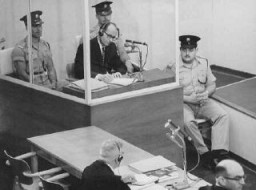
The Nazi regime targeted Jehovah’s Witnesses for persecution. Learn about the history of Jehovah’s Witnesses in Germany before and after the Nazi rise to power.
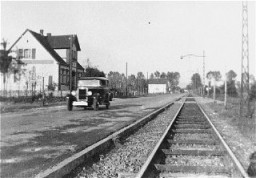
Between 1942-1945, over 116,000 Polish refugees immigrated to Iran. Learn more about their motivations to relocate and life in Iran during the war.
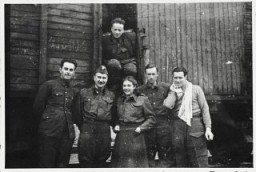
Henny's parents met in Germany soon after her father emigrated from the Russian Empire. Henny was the first of the Jewish couple's three children. The family lived in Frankfurt am Main, an important center of commerce, banking, industry and the arts. 1933-39: After the Nazis came to power, they began to persecute Jews, Roma (Gypsies), men accused of homosexuality, people with disabilities, and political opponents. In 1938, as one way of identifying Jews, a Nazi ordinance decreed that "Sara" was to be…
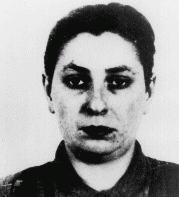
Gideon was known affectionately as "Gi" by his family and friends. His parents were descended from the Huguenots, French Protestants who came to the Netherlands in the 16th and 17th centuries. Gi had two brothers and two sisters, and his father worked in the insurance business. 1933-39: Gi had a large circle of friends, both Christians and Jews, and after school they all liked to get together. He and his friends enjoyed taking bike trips, having parties, and playing records. In the mid-1930s his parents…
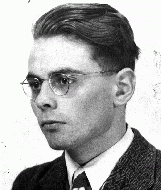
Lucine was born to a Jewish family in Lublin. Her father was a court interpreter and her mother was a dentist. War began with the German invasion of Poland on September 1, 1939. Lucine's home was raided by German forces shortly thereafter. Soon after the German occupation of Lublin, Jews there were forced to wear a compulsory badge identifying them as Jews. A ghetto in Lublin was closed off in January 1942. Lucine survived a series of killing campaigns and deportations from the ghetto during March and…

The Law on the Head of State of the German Reich was the last step in destroying democracy in interwar Germany and making Adolf Hitler a dictator. Learn more.
The Reich Security Main Office (RSHA), created by Heinrich Himmler, brutally coordinated and perpetrated many aspects of the Holocaust.
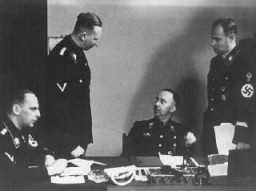
We would like to thank Crown Family Philanthropies, Abe and Ida Cooper Foundation, the Claims Conference, EVZ, and BMF for supporting the ongoing work to create content and resources for the Holocaust Encyclopedia. View the list of donor acknowledgement.